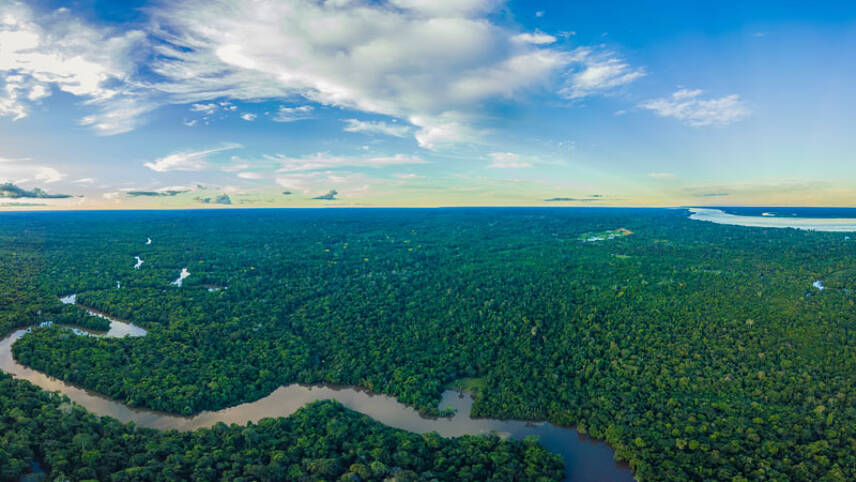Register for free and continue reading
Join our growing army of changemakers and get unlimited access to our premium content

Delegates from each of the nations convened in Belem, Brazil, earlier this week for a two-day summit intended to signal cooperation on halting and reversing deforestation in the Amazon rainforest.
The outcome was a 10,000-word joint declaration on collaboration to tackle deforestation, but the declaration stipulates that each nation can draw up its own plans to halt deforestation by 2030.
This was a weaker outcome than many environmentalists had hoped for. There are concerns that nations could continue to allow ‘legal’ deforestation beyond climate limits, or that they will continue oil exploration and mining expansions that could harm forest ecosystems. This is despite Brazilian president Lula’s push for an agreement that ended all “plundering” of natural resources for short-term economic gain.
“The planet is melting, we are breaking temperature records every day. It is not possible that, in a scenario like this, eight Amazonian countries are unable to put in a statement – in large letters – that deforestation needs to be zero,” said Climate Observatory campaigner Marcio Astrini.
Nonetheless, Brazil has called the new treaty an “ambitious shared agenda”. It covers the root causes of deforestation, including organized crime and industrial agriculture, as well as noting solutions that promote not only nature conservation and restoration, but social benefits too.
Signing the new treaty were Bolivia, Brazil, Colombia, Ecuador, Guyana, Peru, Suriname and Venezuela.
The treaty also includes commitments for rainforest nations to send collaborative signals to developed nations, whose private and public investments in the past have fuelled fossil fuel extraction and deforestation in South America.
Climate finance from overseas should be scaled up and better directed to forest conservation and restoration, the text states. It also makes reference to ongoing work to ease debt in developing nations, including debt related to climate finance loans, to help them access capital. This workstream was kick-started at COP27 last winter, with Barbadian Prime Minister Mia Mottley being a key architect.
The state of deforestation
“The rainforest is neither a void that needs occupying nor a treasure trove to be looted. It is a flowerbed of possibilities that must be cultivated,” Lula told the summit.
Leftist Lula was elected late last year and attributes his success partly to his vision to tackle the deforestation that was permitted under his predecessor Jair Bolsonaro. The meeting this week was the first of its kind in 15 years.
MapBiomas estimates that around 17% of the Amazon rainforest by area size had been destroyed by 2021. Damage has been driven by agriculture, logging, mining and oil exploration.
Further damage would undermine global efforts to preserve biodiversity and tackle climate change. The Amazon is home to 10% of Earth’s biodiversity and is one of its largest natural carbon sinks.
Deforestation rates are reportedly down significantly as a result of Lula’s interventions, including increased policing of organised crime. Brazil stated last week that deforestation in the Brazilian Amazon in July was at least 60% lower than the year prior.


Please login or Register to leave a comment.